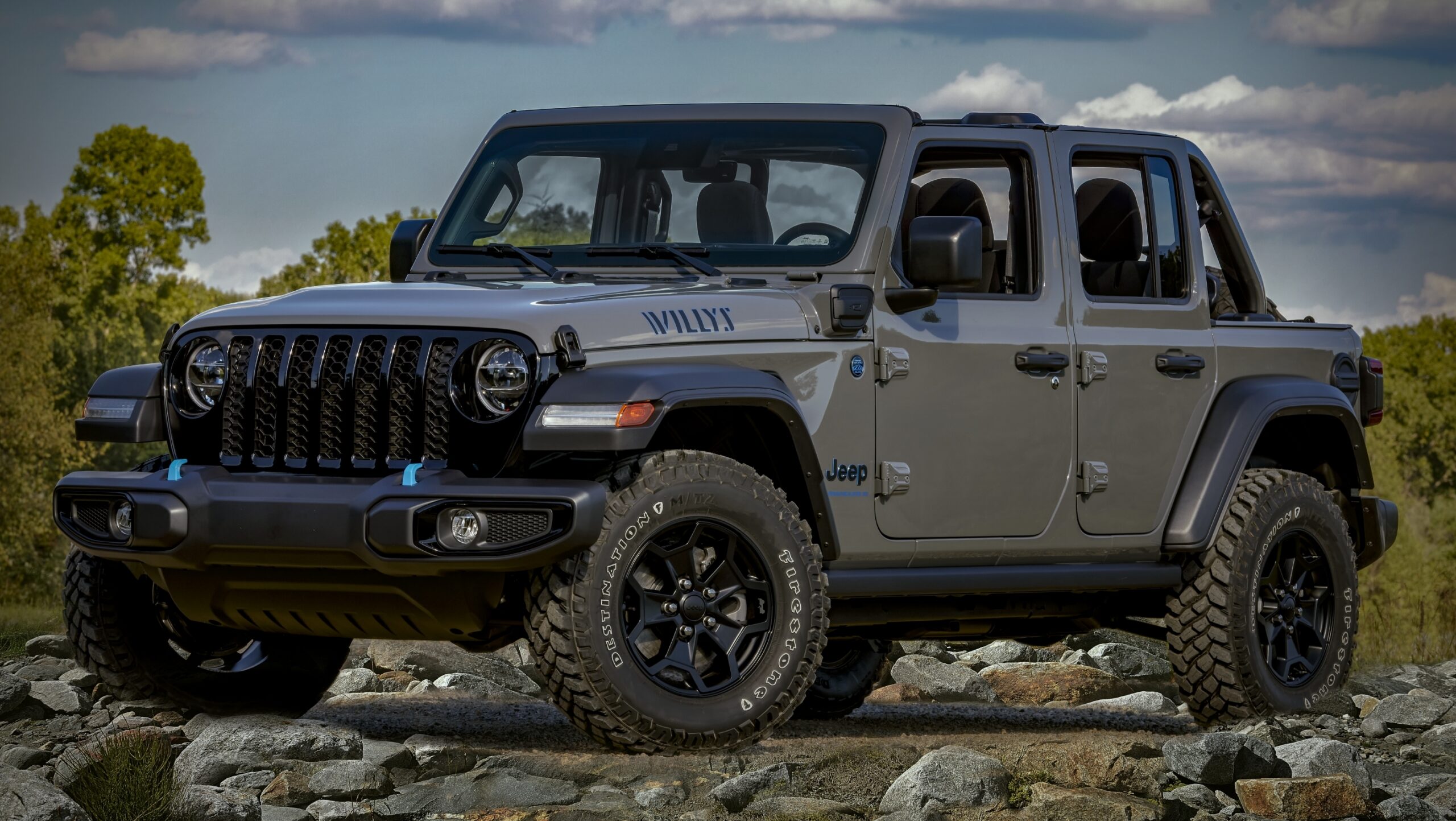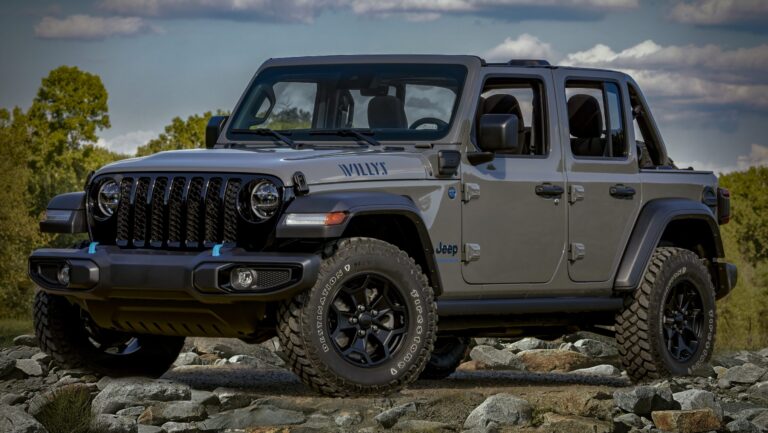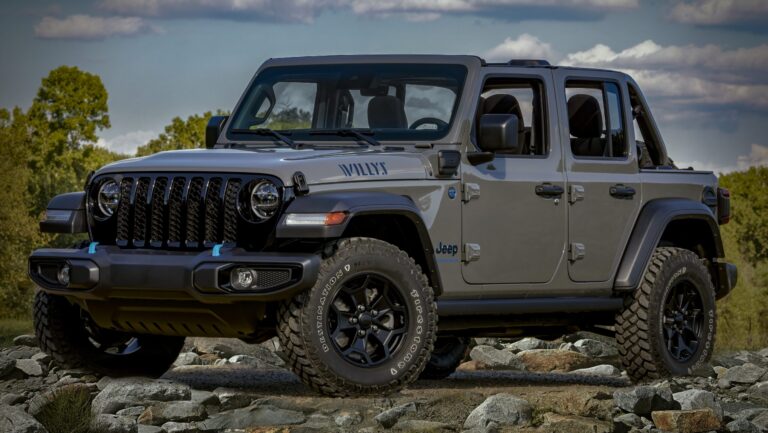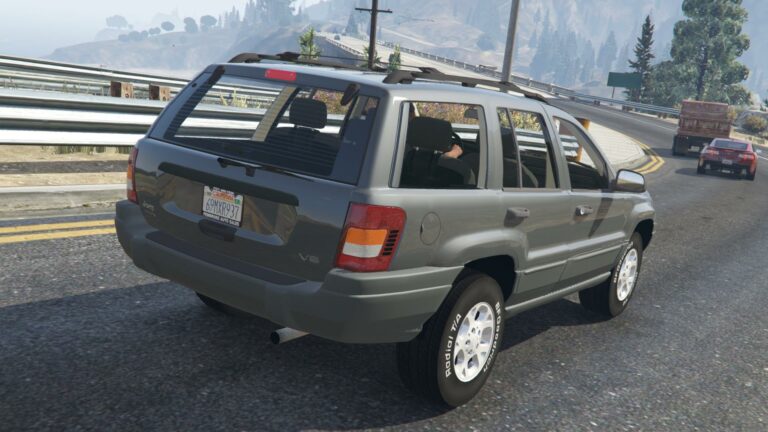Jeep Kit Cars For Sale: Building Your Off-Road Dream
Jeep Kit Cars For Sale: Building Your Off-Road Dream jeeps.truckstrend.com
The allure of a classic Jeep – the rugged utility, the iconic grille, the go-anywhere spirit – is undeniable. Yet, fully restored vintage models often command premium prices, and modern Jeeps, while capable, can lack the raw, customizable appeal of their predecessors. This is where the world of Jeep Kit Cars For Sale steps in, offering an exciting and often more accessible pathway to owning a personalized off-road machine.
A Jeep kit car isn’t just a purchase; it’s an adventure. It’s the opportunity to roll up your sleeves, unleash your inner mechanic, and build a vehicle tailored precisely to your vision, whether that’s a faithful replica of a WWII Willys MB, a modernized classic CJ, or a unique custom rig designed for extreme trails. This comprehensive guide will navigate you through the fascinating landscape of Jeep kit cars, from understanding what they are to the practicalities of acquiring, building, and legally registering your dream machine.
Jeep Kit Cars For Sale: Building Your Off-Road Dream
Understanding Jeep Kit Cars: What Are They?
At its core, a Jeep kit car is a vehicle assembled by the owner from a collection of parts provided by a manufacturer, often utilizing components from a "donor" vehicle. Unlike a factory-built Jeep, a kit car allows for immense customization and a deeper connection to the finished product.
Typically, Jeep kit cars fall into a few categories regarding their completeness:
- Body-Only Kits: These are the most common and often the most affordable entry point. They consist primarily of a new body (fiberglass or steel), grille, hood, and fenders, designed to fit onto an existing donor vehicle’s chassis, engine, and drivetrain. Popular donor vehicles include older Jeep CJs (CJ-5, CJ-7), Wranglers (YJ, TJ), or even non-Jeep platforms like Ford Rangers or Chevy S-10s, though the latter requires more fabrication.
- Rolling Chassis Kits: A step up in completeness, these kits usually include the body, a new or refurbished frame, suspension components, and sometimes axles. You’ll still need to source the engine, transmission, transfer case, wiring, interior, and all the smaller finishing details.
- Nearly Complete Kits: These are less common for Jeep replicas but do exist. They might include most major components except for the engine, transmission, or certain interior elements, significantly reducing the sourcing effort but increasing the upfront cost.
- Pre-Built/Turn-Key Kit Cars: These are kit cars that have already been assembled by a professional builder or an experienced hobbyist and are sold as complete, running vehicles. They offer convenience but come at a higher price point, reflecting the labor involved.

The appeal of a kit car lies in this modularity. You get to decide the level of involvement, the quality of components, and ultimately, the performance and aesthetic of your vehicle.
Why Choose a Jeep Kit Car? Benefits & Appeal
The decision to pursue a Jeep kit car project is often driven by a unique blend of passion, practicality, and personal aspiration.
- Cost Savings (Potential): While not always guaranteed, building a kit car can often be more cost-effective than purchasing a fully restored vintage Jeep or a brand-new, highly customized off-roader. You control the budget by choosing new, used, or rebuilt components.
- Unparalleled Customization: This is perhaps the biggest draw. From engine swaps (V8, diesel, electric!) and custom suspension setups to bespoke interiors and unique paint schemes, a kit car allows you to build a vehicle that truly reflects your personality and intended use. Want a classic Willys with modern power and air conditioning? A kit car makes it possible.
- The Learning Experience: For many, the journey of building a kit car is as rewarding as the destination. It’s an immersive hands-on education in automotive mechanics, fabrication, and problem-solving. You gain an intimate understanding of every nut and bolt in your vehicle.
- Nostalgia and Replication: Kit cars provide a fantastic way to own the look and feel of a classic Jeep without the inherent reliability issues or scarcity of original parts that can plague genuinely vintage vehicles. You get the iconic styling combined with modern drivability and safety improvements.
- Off-Road Capability: Since many kits are designed to utilize robust Jeep chassis and drivetrain components, the resulting vehicles are often incredibly capable off-road, sometimes even surpassing stock Jeeps due to custom modifications.
- Satisfaction and Pride: There’s an immense sense of accomplishment that comes from building a complex machine with your own hands. Every drive becomes a testament to your skill and dedication.


Types of Jeep Kit Cars Available
The market for Jeep kit cars is diverse, catering to various tastes and budgets.
- Classic Willys MB/Ford GPW Replicas: These are hugely popular, aiming to faithfully recreate the iconic look of the WWII military Jeep. Manufacturers like MD Juan, Omix-ADA (for parts), and several smaller independent fabricators offer bodies and components. These often use donor frames from CJs or custom frames.
- CJ Series Replicas (CJ-2A, CJ-5, CJ-7): Replicas of the civilian Jeep line are also common, appealing to those who love the classic open-top, short-wheelbase design. These are typically designed to bolt onto original CJ frames.
- Custom Buggy/Rock Crawler Kits: While not always "Jeep" replicas in appearance, these kits often use Jeep drivetrain components (axles, transfer cases) and are designed for extreme off-road performance. They feature minimalist bodywork and robust tubular frames.
- Wrangler-Lookalikes: Less common as full kits, but some companies offer body conversions or custom hardtops that give an older Jeep a more modern Wrangler aesthetic.
When exploring kit types, always verify what is included and what you will need to source separately. This will dramatically impact your budget and build time.
The Process of Buying & Building a Jeep Kit Car
Embarking on a kit car project requires careful planning and execution.
- Research & Planning: Define your goals. What kind of Jeep do you want? What’s your budget? What’s your skill level? How much time can you dedicate? Research specific kit manufacturers and their reputations.
- Finding a Kit:
- Direct from Manufacturers: Many companies specialize in specific replica bodies or rolling chassis. A quick online search for "Willys MB replica kit" or "CJ body kit" will yield results.
- Online Marketplaces: eBay, Craigslist, and specialized automotive forums often have kits for sale, sometimes even partially completed projects.
- Kit Car Classifieds: Websites dedicated to kit cars are excellent resources.
- Donor Vehicle Selection: If your kit requires a donor, this is a critical step. Look for a donor with a solid frame (minimal rust), a clean title, and potentially a usable engine/drivetrain if you plan to reuse them. Common Jeep donors include CJ-5, CJ-7, YJ, and TJ models due to their robust frames and widely available parts.
- Assembly Considerations:
- Space: You’ll need a dedicated workspace, preferably a garage, with enough room to work around the vehicle and store parts.
- Tools: A comprehensive set of hand tools, power tools, jacks, stands, and potentially a welder, engine hoist, and air compressor are essential.
- Mechanical Skill: While some kits are more "bolt-together," a good understanding of automotive mechanics, wiring, and basic fabrication is highly beneficial. Don’t be afraid to learn as you go, but know your limits.
- Time Commitment: Building a kit car is not a weekend project. It can take hundreds to thousands of hours, spread over months or even years, depending on the complexity and your available time.
Important Considerations Before You Buy
Before diving in, weigh these crucial factors carefully:
- Budget Beyond the Kit: The kit price is just the beginning. You’ll need to budget for the donor vehicle, engine, transmission, transfer case, axles, driveshafts, wiring harness, gauges, seats, steering column, fuel tank, cooling system, exhaust, brakes, tires, wheels, paint, and countless small hardware items. Always add a 20-30% contingency fund for unexpected costs.
- Skill Level Required: Be honest about your mechanical aptitude. While many resources exist, some tasks (e.g., wiring, engine tuning, complex fabrication) may require professional help, adding to costs.
- Time Commitment: Projects can stall due to lack of time. Ensure you have the sustained dedication.
- Resale Value: While a well-built kit car can be impressive, its resale value might not always match the total investment, especially compared to original, restored vehicles. Build it for the enjoyment of the process and ownership, not primarily as an investment.
- Safety & Reliability: You are responsible for ensuring your assembled vehicle is safe. Do not cut corners on critical components like brakes, steering, or suspension. Use quality parts and follow best practices.
- Legal Compliance & Registration: This is perhaps the most critical and often overlooked aspect. Rules vary significantly by state and country. You will need to research how to title a "specially constructed vehicle" or "assembled vehicle" in your jurisdiction. This often involves inspections, VIN assignments, and adherence to specific safety and emissions standards. Some states are much more kit-car friendly than others. Always confirm these requirements BEFORE you start your build.
Tips for a Successful Jeep Kit Car Project
- Start with a Clear Plan: Document every step, every part needed, and create a detailed budget.
- Document Everything: Take photos and keep meticulous records of all receipts, part numbers, and work performed. This is invaluable for troubleshooting, future maintenance, and especially for registration.
- Join Online Communities: Forums and social media groups dedicated to kit cars or specific Jeep models are treasure troves of information, advice, and moral support.
- Don’t Cut Corners on Safety: Invest in quality braking, steering, and suspension components.
- Budget for Unexpected Costs: Things will go wrong, parts will be needed that you didn’t anticipate.
- Verify Legal Requirements Early: This cannot be stressed enough. A finished vehicle you can’t legally register is just a very expensive lawn ornament.
Challenges and Solutions
- Challenge: Finding a Good Donor Vehicle.
- Solution: Be patient and broaden your search. Look for a clean title and a rust-free frame above all else, as these are the hardest to fix.
- Challenge: Technical Difficulties/Lack of Specific Skills.
- Solution: Utilize online resources (manuals, YouTube tutorials), join forums for advice, and don’t hesitate to consult or hire professionals for tasks beyond your expertise (e.g., engine tuning, complex wiring).
- Challenge: Budget Overruns.
- Solution: Maintain a detailed budget spreadsheet, track every expense, and prioritize essential components. Consider sourcing good used parts where appropriate.
- Challenge: Registration Hurdles.
- Solution: Thoroughly research your local Department of Motor Vehicles (DMV) requirements before starting. Keep all documentation, including receipts for major components and photos of the build process.
Jeep Kit Car Price Guide
The cost of a Jeep kit car project varies dramatically based on the kit’s completeness, the donor vehicle’s condition, the quality of components chosen, and whether you do all the labor yourself or hire assistance. This table provides estimated ranges for the kit itself and the total estimated project cost.
| Kit Type/Completeness | Typical Kit Price Range (USD) | Estimated Total Project Cost (USD) | Key Inclusions/Notes |
|---|




